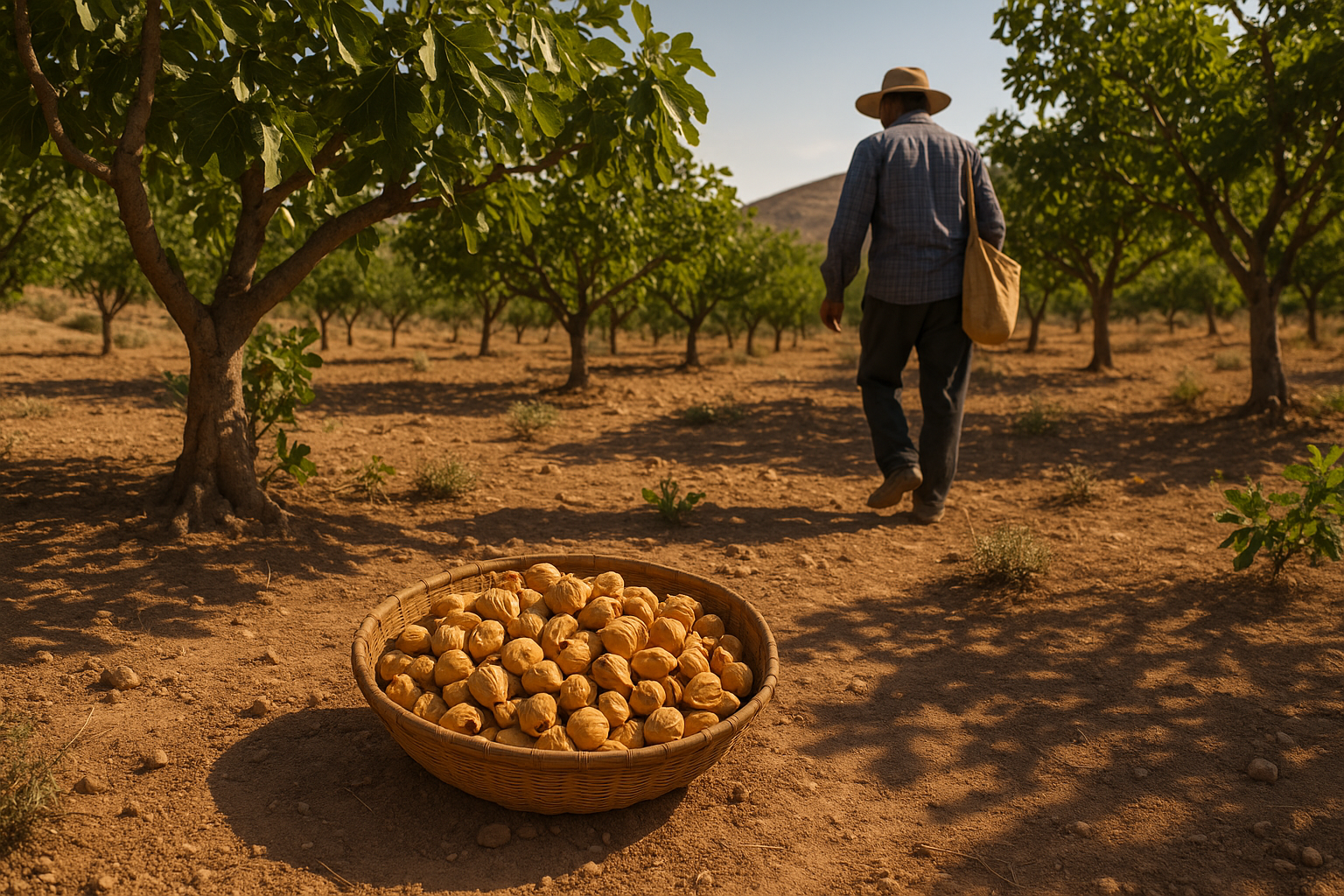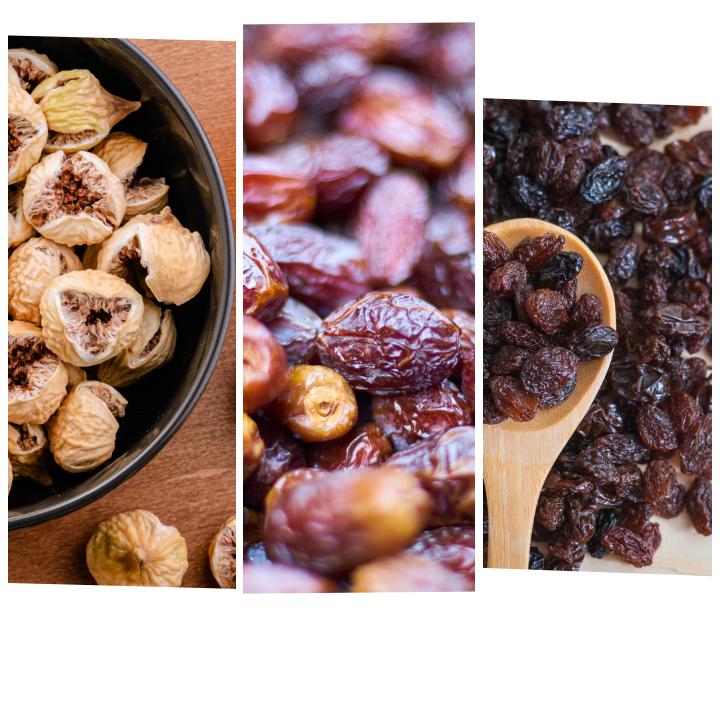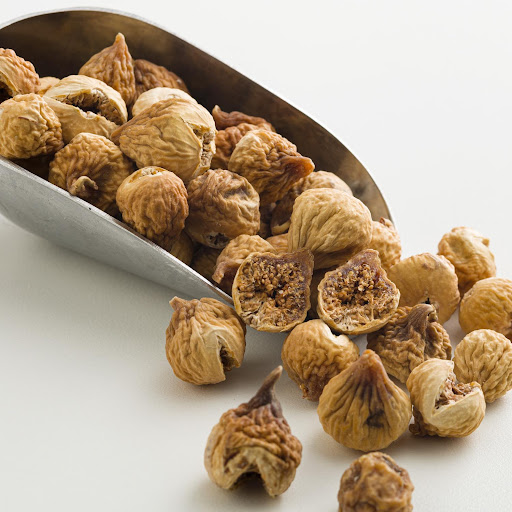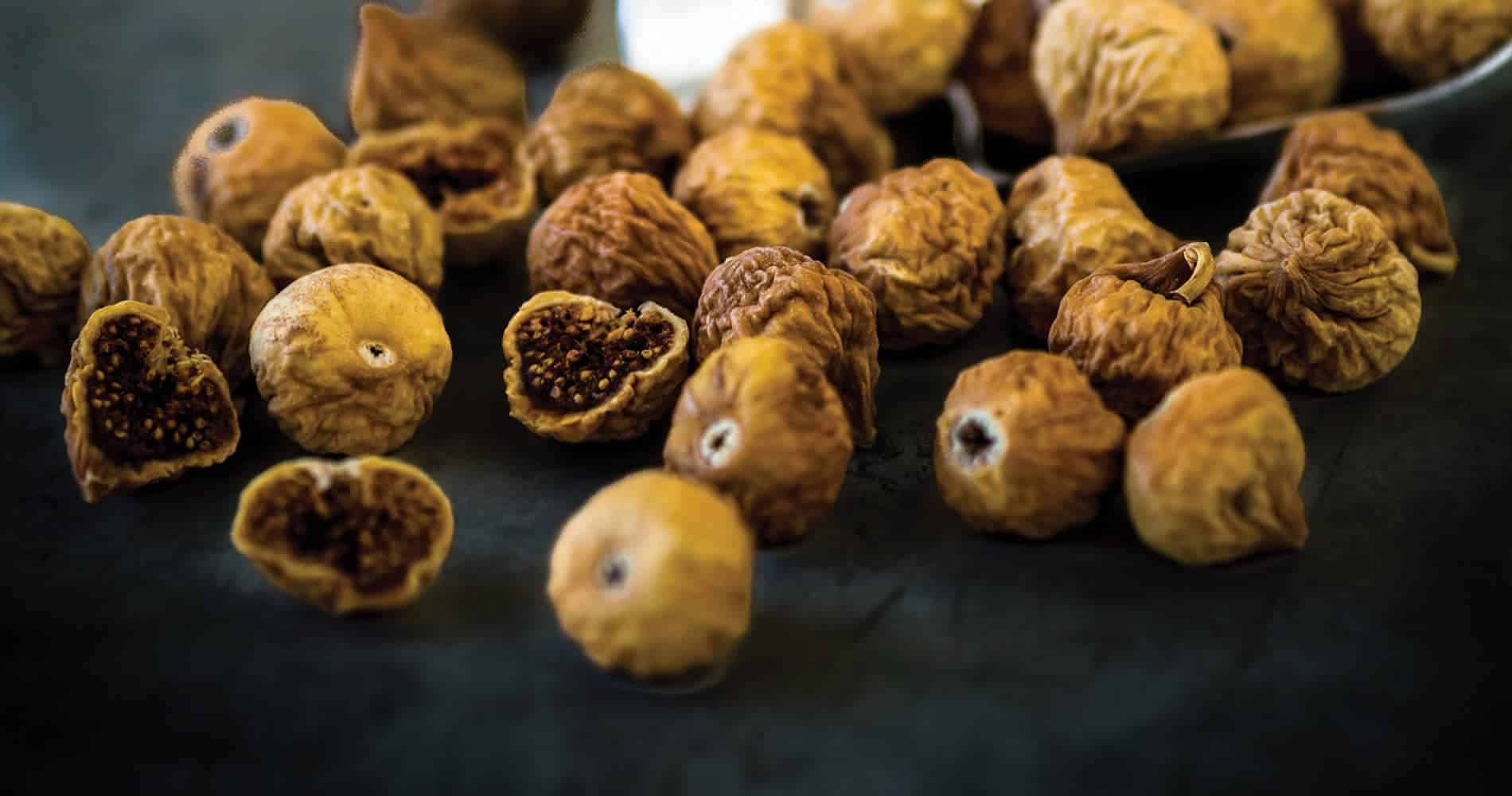When it comes to healthy snacks and natural sweeteners, few foods can compete with the timeless appeal of dried fruits like figs, dates, and raisins. Each offers a unique flavor, nutritional profile, and set of benefits — but depending on your needs, one may suit you better than the others.
In this guide, we break down the key differences, industrial applications, health benefits, and help you choose the best dried fruit for your lifestyle or business.
Flavor and Texture: A Natural Symphony of Sweetness
Dried Figs:
Earthy, subtly sweet, and packed with tiny seeds that create a pleasant, delicate crunch. Their rich complexity makes figs a favorite for both gourmet dishes and healthy snacks.
Dates:
Luxuriously rich and caramel-like, dates offer a wide range of distinctive flavors. We have listed several different types of dates along with their flavor profiles and suggested uses.
Raisins:
Bursting with bright, tangy-sweet or deep, wine-like notes, raisins deliver a soft, chewy bite. Ideal for quick snacks, baking, and energy-boosting trail mixes.
Types of Various Dates and Raisins and Their Flavors
date
Date variety | Flavor profile | texture | Notable |
medjool | Rich, caramel-like, intensely sweet | Soft, fudgy | Eaten fresh, gourmet desserts |
Deglet noor | Mild Sweetness with nutty undertones | Semi-dry, firm | Baking stuffing |
barhi | Buttery, buttery, syrupy, extremely sweet, when ripe | Firm, semi-dry | Fresh eating, luxury sweets |
Zahidi | Nutty, mildly sweet, less sugary | Firm Semi-dry | Industrial uses, syrups |
halawi | Honeylike, moderately sweet | Tender and chewy | Snacking, dessert |
sukkary | Very sweet, crispy when fresh, softens over time | Crisp to soft | Fresh eating |
mazafati | Moist, chocolatey, and sweet | Very soft and moist | Fresh consumption, energy bar |
raisins
Raisins variety | Flavor profile | Textures | Notable use |
Golden raisin | Sweet, slightly tangy with floral notes | Soft, plump | Baking, snacks
|
Sultana | Very sweet, lighter And juice | Soft, juicy | Cereal, pastries |
Black raisin | Deep, rich, wine-like, sweetness | Chewy and dense | Breeds, desert, cake, and snacks |
Currant | Tart, bold, slightly tangy | Small, firm | Fruit, cakes, and traditional baking |
Red raisin | Mildly sweet, fruity, less intense than black raisins | Soft, fruity | Salad, toppings, snacks |
Nutritional Comparison (100g)
Industrial Applications: From Kitchen to Factory
Nutrient | Dried fig | Dates | Raisins |
Calories | 249kcal | 277kcal | 299kcal |
Natural sugars | 9.8g | 63g | 59g |
Fiber | 680mg | 7g | 3.7g |
Potassium | 162mg | 696mg | 749mg |
Calcium | 162mg | 64mg | 50mg |
Iron | 2.03mg | 0.9mg | 1.88mg |
Antioxidants | Very high | high | moderate |
Alchemy of Flavors to Industry - Usage of each of them
Dried Figs
- Gourmet Cuisine: Charcuterie boards, artisanal cheese pairings, gourmet salads, Healthy
- Food Industry: Energy bars, fiber-rich snacks, child food, sport nutrition, ice cream, cake, jam, fitness, and clean-label products.
- drinking industry: beverages, flavored tea, energy drinks, sugarless drinks.
- diabetes product
Dates
- Sports Nutrition: Natural energy bars, pre/post-workout snacks.
- Plant-Based and Vegan Foods: Natural sweeteners for desserts, smoothies, and syrups.
- Confectionery Industry: Raw treats, healthy sweets, and luxury chocolates.
Raisins
- Baking Industry: Cakes, cookies, breads, and traditional desserts.
- Snack Manufacturing: Trail mixes, nut blends, and energy clusters.
- Fermentation Processes: Natural flavoring agents in alcoholic beverages and vinegars.
Advantages and Disadvantages of Each Fruit
Dried fruit | Advantages | Disadvantages |
Dried fig | High in fiber, rich in calcium and antioxidants, aids digestion, and contains bulk of natural sugar; Last longer shelf life, no need for a cooling system | Sensitive to moisture improper storage can spoilage |
Dates | Instant energy source, rich in potassium and magnesium, and a natural sugar substitute | Shorter shelf-life, especially once opened without refrigeration;
|
Raisins | Easy to store, highly portable, long-lasting, and contain natural sugar | Lower fiber as compared to dried fig and date.
|
Who Should Choose Which?
Choose Dried Figs if you're looking for fiber-rich foods, digestive health support, or a gourmet addition to meals and high-end products.
Choose Dates if you need fast, clean energy, a natural sweetener for plant-based recipes, or ingredients for sports nutrition products.
Choose Raisins if you want a cost-effective, iron-rich, and easy-to-use ingredient for baking, snacking, or large-scale food production.



 English
English
 العربية
العربية








.png)

